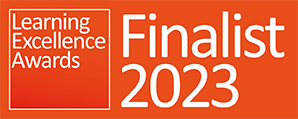Having generational diversity in the workplace is quite common today, whether it’s their views on mental health, work/life balance, or the amount of recognition they require. But is there enough insight within successful modern businesses for employers to comprehend all the challenges of multiple generations in the workplace?
From common issues that arise such as intergenerational relationships and figuring out how employers can better manage their younger employees to the generationally different approach in expectations of how to present yourself in the workplace. Discover ways in which companies can combat the intergenerational differences in the workplace and better understand how the strengths and weaknesses of each generation are vital for business growth.
Research by Zurich has found that 27% of the workforce will be Gen Z (1997 – 2012) within the next two years. Whilst Deloitte Digital have found that some already in the workplace are seen as authentic, highly collaborative and self-reliant, they’re also seen as stressed and anxious.
It’s not hard to see why a recent article in the New York Post highlighted that 3 in 4 managers say it’s ‘hard to work’ with Gen Z (a.k.a. zoomers), as pre- and post- pandemic culture differences clash, with workers of all ages reconvening in the office environment after a period where working from home was the norm. Added to this is the push for a four day working week with a view to a better work/life integration and improved mental health, pay rises and promotions every 6- 18 months as well as more holiday allowance as a reward. Quite the shopping list!
What challenges do Gen Z face in the workplace?
Joining the workplace in a seemingly constant state of flux, the other generations currently in the workplace are asking how this will impact the way Gen Z view their jobs and bosses? How will it impact their workforce engagement and productivity?
For a new employee, building a relationship with their boss is critical to engagement and job satisfaction. Deloitte Digital sent out a survey to find out more about this relationship and found that generational groups share some common beliefs and values: both workers and their bosses feel that patience, appreciation, psychological safety, and flexibility are key to pursue good professional relationships and staying engaged in their work.
Additional research from Deloitte advised that Gen Z employees are better engaged through programmes that prioritise social activism and job stability, as well as leadership development and training programmes, human connection, and an authentic company culture.

Why is there a clash between Gen Z and Other Generations?
While this works for Gen Z, there’s a constant balancing act required to achieve harmony across the generations. Baby Boomers, Gen X and Millennials share different values, so, to create a sustainable environment to all, these are the key values that need to be worked on:
Empathy In The Workplace
By helping Gen Z feel valued and understood, we can create a more engaged and productive workforce. Recent research published by Forbes.com found that while Gen Z ranked Empathy as their second most important trait in a boss, the bosses ranked it a distant fifth.
The clash?
While bosses need to carve out some time to walk a mile in the shoes of their Gen Z team, the new entrants to the workplace also need to take responsibility for showing what they can do and being accountable for their outputs.
Mental Health In The Workplace
The hybrid working environment, unclear work life balance, and blurred lines between work and home, resulting in 46% of Gen Z reporting high levels of stress and anxiety. Alchemist research with YouGov found that 20% of Gen Z believed employers should do more to support their work life balance which will benefit their wellbeing.
The clash?
Reasonable adjustments should be made for all because mental health matters. but should Gen Z expect the balance between personal vs employer responsibility in managing mental health to be different for their generation?
Separating Work and Personal Identity
As zoomers continue to enter the workplace, it’s clear that they have a different perspective than their bosses and colleagues. According to a recent study published in Forbes, only 61% of young employees believe that their work is an important part of their identity, while 86% of their bosses hold the same belief.
The clash?
What does this mean for managers? It means that in order to properly support and motivate their Gen Z employees, they need to understand the unique values and priorities that drive this generation. Instead of expecting them to conform to traditional workplace norms, managers should be open-minded and willing to adapt their leadership style to accommodate this new wave of talent.
Training and Job Readiness
Gen Z entering the job market have fresh ideas and different expectations. Bosses and employees alike are recognising a lack of training and development programmes that prepare younger workers for their roles.
The clash?
While it may be time to step up and engage with Gen Z, offering them the support they need to thrive in their jobs, they may also need gently reminding that they don’t already know everything. Forbes have said that employees who learn on the job are 2.5x more likely to stay with their current organisation.
Reward and recognition
Gen Zers are not just looking for a wage, they also want to have a sense of purpose and fulfilment in their work. And one of the ways they want to achieve this is by having flexibility and time off as a reward for their hard work. Forbes issued an article addressing what other generations want in forms of reward and recognition and the most desired choice was being secure within a business for their job and their pay.
The clash?
Some bosses may be hesitant about providing this kind of reward, as they see it as a non-traditional form of recognition. But who says traditional is always the best way? It’s not unrealistic to be more open-minded and accommodating to the needs of their employees, bosses can create a healthier and more productive workplace that motivates Gen Z to work harder.

Bridging the Generation Gap
With Gen Z making up more and more of the workforce, bosses are optimistic about exploring and developing solutions. Even though there may be a lot of excitement and curiosity around the changes that the workplace will go through over the next decade. But, in order to bridge the generation gap with Gen Z, the first step is identifying the challenges and understanding why they exist.
This means recognizing that Gen Z brings a unique set of values, expectations, and work styles to the table. What remains to be seen is how these differences will be embraced and leveraged to shape the workforce of the future. It’s a journey that both Gen Z and their bosses must take together. If you’re a boss, don’t hesitate to open up the dialogue and start exploring ways to make your workplace truly future-ready.
If you are ready to embrace the wonders of Gen Z in your workplace and are looking for support in making sure the clash never happens, speak to an Alchemist today.






















